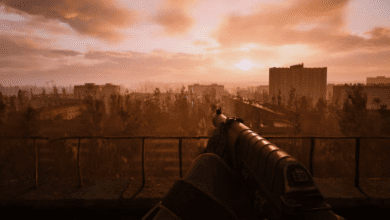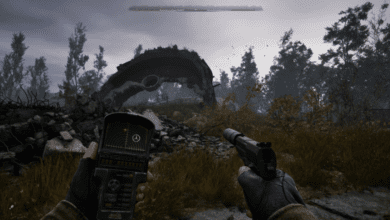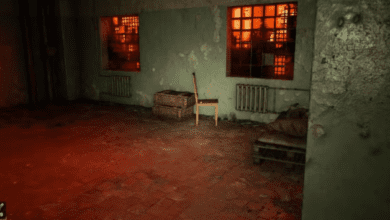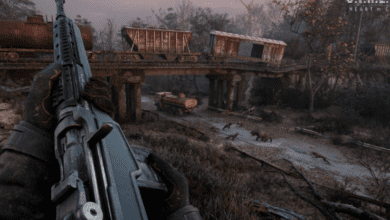The Return Review: Ralph Fiennes and Juliette Binoche Reunite in a Visually Stunning, Slow-Burning Adaptation of The Odyssey
There’s something undeniably magnetic about Ralph Fiennes and Juliette Binoche. These two celebrated actors, reunited on-screen for Uberto Pasolini’s The Return, give life to characters as iconic as Odysseus and Penelope from Homer’s The Odyssey. Yet, as dazzling as their performances are, The Return can’t quite escape its slow pacing, which may test the patience of even the most ardent fans of classical adaptations.
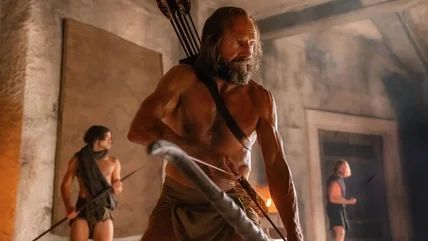
In this modern retelling, Pasolini narrows his focus to the final third of The Odyssey, eschewing the grandeur of Odysseus’ mythical adventures for a more meditative exploration of his long-awaited return to Ithaca. Gone are the sirens, cyclops, and epic battles. Instead, the film presents us with a war-weary Odysseus, emotionally and physically scarred, returning to a home that has been ravaged in his absence. The film’s restraint is admirable, but at times, it leaves you wanting more more action, more drama, and, quite simply, more of the essence that makes The Odyssey such a beloved epic.
A Story of War and Trauma
At its core, The Return is less about the heroism of Odysseus and more about the trauma of war. Fiennes’ portrayal of Odysseus is not that of a victorious warrior but of a man burdened by the memories of his fallen comrades. He returns home as a shadow of his former self, his body riddled with scars and his mind haunted by the horrors of the Trojan War.
From the moment he washes up on the shores of Ithaca, naked and broken, it’s clear that this is a man deeply damaged. His speech is quiet, almost a whisper, as though the weight of his experiences has stolen his voice. His emotional distance is palpable, especially in his interactions with his wife, Penelope, who has waited decades for his return.
Penelope, played with quiet intensity by Juliette Binoche, is also scarred by the passage of time. Left to fend off suitors and protect her son Telemachus, she is strong and resilient, but there’s a sadness that lingers in her eyes. Binoche delivers a masterclass in silent acting, using her expressions and body language to convey the deep well of emotions bubbling beneath the surface.
But does this slow, introspective approach work for a story as grand as The Odyssey? That’s where things get tricky.
Stripped Down to the Bones: Minimalism in The Return
Pasolini makes a bold choice in stripping The Odyssey of its larger-than-life elements. By focusing solely on the emotional journey of Odysseus and Penelope, he transforms the epic into a domestic drama a story about a family trying to heal after years of separation. It’s an intimate portrayal of loss, grief, and the struggles of reintegration after war.
However, this minimalism comes at a cost. Without the gods, monsters, and high-stakes adventures, the film risks feeling hollow at times. Yes, the cinematography is stunning every frame is carefully composed, and the lighting, often natural, creates a sense of timelessness. The close-ups of Fiennes and Binoche are mesmerizing, their faces etched with the passage of time. But the film’s slow pace and lack of action can make it feel more like an art piece than an engaging narrative.
There’s a fine line between introspective and tedious, and The Return treads that line precariously.
The Emotional Weight of Silence
One of the film’s strengths, however, is its use of silence. Many scenes play out without dialogue, relying instead on the physical performances of Fiennes and Binoche to carry the weight of the story. Penelope’s long stretches of waiting, unraveling her knitting each night to delay her suitors, are imbued with a quiet desperation. Fiennes’ Odysseus, on the other hand, is often seen retreating into the shadows, struggling to reconcile the man he has become with the king and husband he once was.
This silence is both a strength and a weakness. On the one hand, it allows for a deeper exploration of the characters’ inner turmoil. On the other hand, it can make the film feel agonizingly slow, particularly in its first half. The pacing improves considerably in the final act, but by then, some viewers may have already checked out.
Penelope and the Power of Restraint
One of the most compelling aspects of The Return is its portrayal of Penelope. Often overshadowed by her husband’s larger-than-life adventures, Penelope is given a much more central role here. Binoche’s performance is nothing short of captivating. She infuses Penelope with strength, vulnerability, and a quiet resilience that makes her the emotional anchor of the film.
In a narrative that is often dominated by the male hero’s journey, Penelope’s story is one of survival and sacrifice. She must fend off suitors, protect her son, and hold onto the hope that her husband will one day return. Her patience is both her greatest strength and her greatest burden, and Binoche captures this beautifully.
Yet, for all its focus on Penelope, the film stops short of fully exploring the complexities of her character. There are hints of a deeper struggle suggestions that Penelope may have engaged in some form of relationship with her suitors to keep them at bay but these are left frustratingly vague. A more modern take on this classic tale could have delved deeper into these themes, exploring the nuances of Penelope’s choices and the double standards of fidelity in ancient Greece. Instead, The Return remains too restrained, leaving much of its potential untapped.
The Final Act: When The Odyssey Finally Kicks In
For all its brooding and slow build-up, The Return delivers a powerful final act. Odysseus’ showdown with the suitors is as brutal and cathartic as you would expect from an adaptation of The Odyssey. The violence is raw and visceral, a stark contrast to the quiet introspection that dominates the rest of the film. Fiennes brings a ferocity to this final confrontation, and the sense of justice being served is palpable.
The reunion between Odysseus and Penelope is equally moving, if not more so. After years of waiting, their reunion is not one of joyous celebration but of quiet relief. The emotional weight of their reunion is the film’s crowning achievement, a testament to the power of patience, endurance, and love.
A Beautiful Yet Flawed Adaptation
In the end, The Return is a beautiful yet flawed adaptation of The Odyssey. It’s a film that asks a lot of its audience patience, mostly but rewards them with stellar performances and breathtaking visuals. Fiennes and Binoche are magnetic, and their chemistry carries the film even in its slowest moments. Yet, for all its emotional depth, the film’s slow pacing and lack of narrative momentum may leave some viewers wanting more.
Pasolini’s decision to focus on the emotional toll of Odysseus’ journey rather than the adventure itself is bold, but it doesn’t always pay off. The Return is a film that will likely divide audiences those who appreciate its slow-burn approach will find much to admire, while others may find themselves longing for the excitement and action of Homer’s original epic.
Final Thoughts: Is The Return Worth Watching?
If you’re a fan of The Odyssey or enjoy slow, character-driven dramas, The Return is worth your time. It’s a visually stunning film with two powerhouse performances at its core. But if you’re looking for a more traditional, action-packed adaptation of Homer’s epic, you may find yourself disappointed.
Ultimately, The Return is a meditation on loss, trauma, and the passage of time. It’s a film that lingers in the mind long after the credits roll, even if it doesn’t fully satisfy in the moment.


